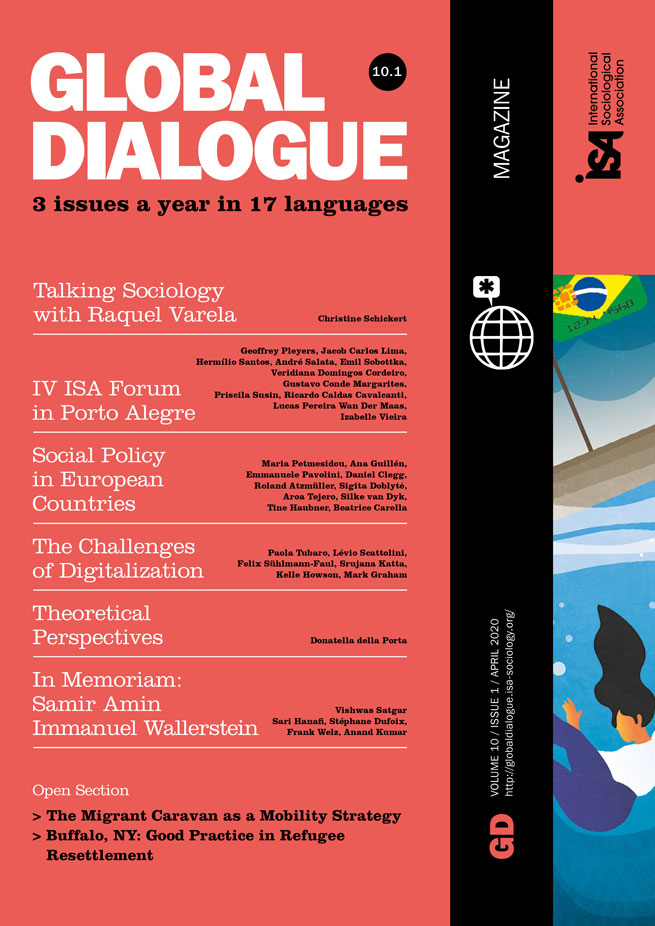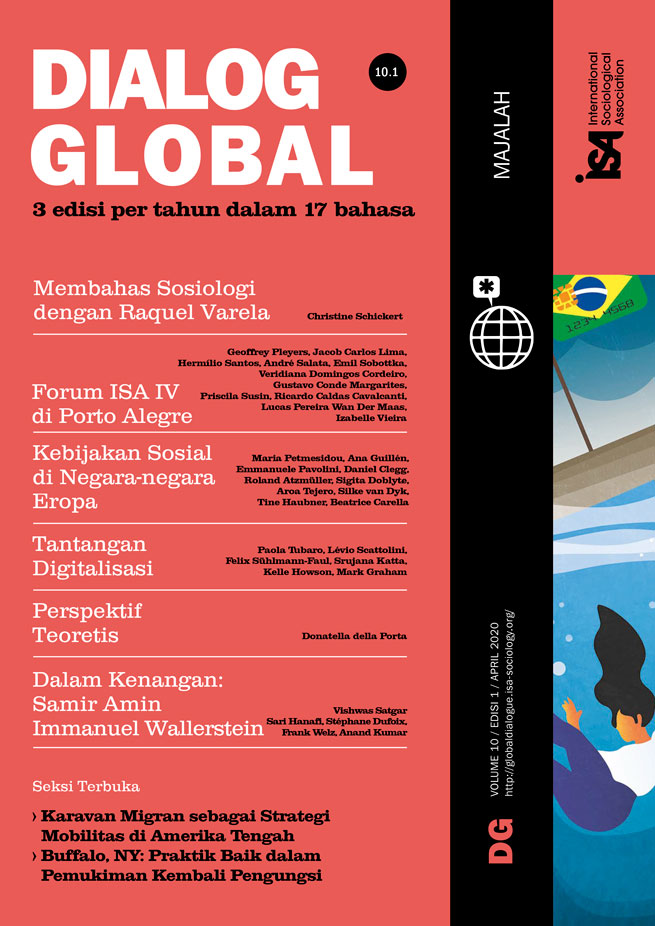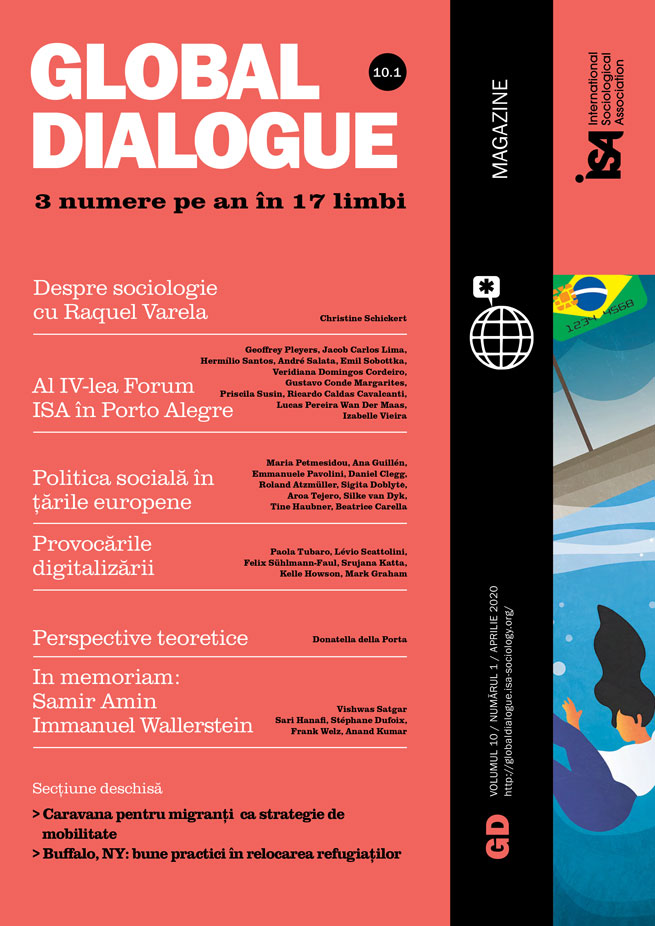We are currently experiencing a crisis of care and social reproduction caused by the dismantling of welfare states, new needs due to demographic change, and changes in gender and family relations. In times when less and less women are available full-time as a resource for social policy, the caring potential of unpaid work - also and especially beyond the family - is becoming increasingly important and has been receiving growing state support. Citizens are increasingly called upon to commit themselves to the common good. Civic engagement and volunteer work are seen as new (re-)productive resources and volunteers are hailed as heroes of everyday life.
Against this background, we are conducting an empirical research project in East and West Germany to investigate how volunteer work is used and exploited by the state for the provision of services and care. We are also interested in how this constellation is experienced, interpreted, and shaped by both the engaged individuals themselves and the beneficiaries of their help. While numerous and predominantly affirmative studies on different fields of engagement and charities are available, a political economy of volunteering that systematically illuminates and critically reflects upon the political, social, and economic implications of this practice has not yet been developed. We use the term “shadow economy” to describe this context, because we are dealing with an area of informal work that represents a welfare factor and contributes to the creation of value (through unpaid working hours) - beyond regular employment with social insurance contributions. In concrete terms, therefore, we want to know to what extent the promotion, demand, and use of voluntary work by the state becomes a vehicle for processes of substitution, informalization, and de-professionalization of regular employment.
Herein, substitution sometimes means that activities that were previously regular jobs are shifted into the context of voluntary work. There are examples of this in our study, as in the context of full-day care in schools when voluntary “youth companions” compensate for the teacher shortage or volunteer family helpers replace state family support. We also find examples of newly emerging needs not being met by expanding regular employment, but by creating new fields and forms of engagement - for example, in elderly care. In addition to these forms of direct substitution of regular employment or the prevented expansion of regular employment, our study shows further substitution effects, as eroding family care and the lack of skilled workers (e.g. in nursing, crafts, or legal advice) are also compensated for by volunteers.
While volunteering and civic engagement is usually highly praised throughout the country, we observe a de-professionalization through these developments. Poorly trained laypersons actually take on professional tasks in the areas of education, family help, elderly care, German classes for refugees, or legal advice. These non-professional services are primarily aimed at those who lack the resources to compensate for gaps in state provision or new needs through private purchase of professional services. Therefore, the use and exploitation of voluntary work by the welfare state does not affect all citizens equally: rather, one can observe the emergence of “poor services for poor people” who cannot afford professional aid.
However, it is not only the quality of the services provided which can be problematic, but also the circumstances for the volunteers, who in some areas turn into quasi-employees - without the related social rights. Particularly in areas in which volunteers are expected to be reliable, steady, and experienced - such as elderly care, work with disabled people, or all-day school care – so-called “voluntary contracts” and expense allowances that go beyond the reimbursement of costs play an increasingly important role. These allowances are usually well below the minimum wage, while at the same time labor and collective bargaining standards are being undermined. In this way, the highly praised engagement also contributes to the precarization and informalization of work, at least in some areas of social services of general interest.
In East Germany in particular, civic engagement and volunteer work are closely related to the labor market, meaning that they are often carried out by unemployed people hoping to return to the labor market. In interviews with volunteers and experts we also find statements that frame engagement as a symbolic substitute for paid work. Another important empirical result of our research is the work of the job centers, which sometimes send long-term unemployed people into civic engagement. Moreover, there is another interesting difference between the new (East German) and old (West German) federal states. While the monetization of engagement is viewed rather critically in West Germany, since - according to the widespread view - it damages the character and originality of volunteering, the situation is different in East Germany: The monetary compensation for engagement is regarded as unproblematic and legitimate in the sense of a fair wage for daily work. Here, the aftermath of the German Democratic Republic’s strong labor character becomes apparent, in which there was state-directed volunteer work as well as informal neighborhood help and solidarity, but no concept and practice of typical civic engagement.
Our research focuses on very different areas of engagement and voluntary work: refugee and neighborhood aid, elderly care, involvement in schools, the voluntary fire brigade, engagement in multi-generational homes and local transport services, just to name the most important fields. In all areas there are problematic, but also completely unproblematic developments. In terms of problematic developments, we are observing a new era of social reproduction, which we call “community capitalism,” in which social communities beyond the family are increasingly used as a new resource to overcome reproductive crises. Our critical view of the state’s use of voluntary work does not imply, however, that the state should take on all (social) tasks without exception. When it comes to shifting public services and infrastructure to the area of voluntary work, our criticism is rather directed at those areas where fundamental opportunities in life depend on voluntary support instead of guaranteed social rights.
Silke van Dyk, Friedrich-Schiller University of Jena, Germany <silke.vandyk@uni-jena.de>
Tine Haubner, Friedrich-Schiller University of Jena, Germany <tine.haubner@uni-jena.de>



















